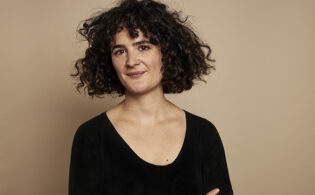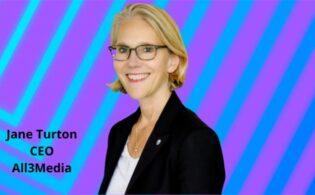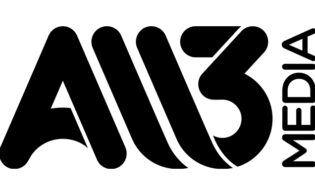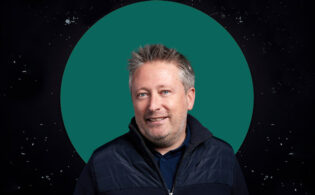PREMIUM: All3media CEO Jane Turton explains how having the best talent, properly incentivized and supported by a skilled distribution arm that helps finance shows, yields the best results creatively and commercially.
WS: What benefits has all3media derived from its shareholders, Discovery Communications and Liberty Global?
TURTON: The support from them in corporate development has been exceptional. You need a supportive shareholder to allow you to do these types of deals and they have been fantastic. They believe in content and they put their financial and strategic resources behind us as we go to them with these proposals. That is an enormous benefit. They have a very long-term view, which is hugely helpful in any sort of IP-generating business, because, as you can imagine, these businesses take time to develop.
Operationally and strategically, they are interested in working with us as content producers for their various platforms and that is helpful. For example, we have a scripted development project with Liberty Global where we are making content for Virgin and Liberty’s other cable companies around Europe. We’re also working closely with Discovery and developing content for their various channels. We also do quite a lot in distribution with them. So the relationship is more than shareholder to subsidiary, it’s one of real strategic partnership as well.
WS: How is all3media filling the demand for drama?
TURTON: Drama has always been really important for us. We maintain a roughly 50-50 balance between scripted and unscripted programming. If you add in the secondary exploitation, we exceed 50 percent scripted. So scripted is huge for us, and a lot of the acquisitions and start-up activity [we have done recently] have been to make sure we’ve got the strongest scripted talent. What is interesting is that our American experience with scripted to date has tended to be more with co-production and presales rather than original made-in-America for American broadcasters. We are beginning to look at that and consider bigger deficit-funded deals in America. As well as looking at indigenous scripted development for the American market, we continue to invest in the strong IP-creating British and German businesses that develop and produce such a strong slate of drama. Drama is a hugely valuable asset in sales terms. It’s talked about television. It’s the staple of so many broadcasters’ schedules. It’s super important strategically and from a profile perspective. We’ve got new players like the streamers and the OTTs coming into the market; that’s even more exciting because suddenly there is incremental revenue coming from them, too. We are making a scripted series, Free Rein, for Netflix through Lime in the north of England that we are very excited about. We are talking to Amazon and Netflix and these new streaming platforms and are very keen to grow our business with them.
WS: Are you also seeing steady demand for factual and factual-entertainment programming?
TURTON: Yes, factual and factual entertainment is most of the other half of our business. And yes, we see great demand for strong ideas and well-produced shows. It is a lovely model. If you can invent a format, own the format, and then sell it around the world, that is something that satisfies on many levels. Gogglebox is a great example, as is Undercover Boss, both from Studio Lambert. We’re excited about forthcoming shows such as Escape and Ultimate Shopping List from Maverick, having that same appeal. Through our partnership with Gordon Ramsay, we produce series like The F-Word, and Ramsay’s Kitchen Nightmares, that travel extremely well around the world. Our venture with Gordon is something that we are proud of, with its new commissions on FOX and the new commissions on ITV. These shows on ITV can potentially work well in the U.S. and elsewhere. Factual entertainment is very important for all3media.
WS: Is all3media also looking for short-form content?
TURTON: We’ve got a production company called Little Dot Studios, which is our principal producer of short-form content for branded partners. Some of our other production companies also produce short form, but it’s predominantly Little Dot. Little Dot runs a lot of digital channels, with up to 2 billion monthly views. Now’s the time to put more investment into the business, particularly in the development of original IP. Some of the shows are up to the 22- to 26-minute mark, and they are relatively long [for short form]. And, some are being commissioned by conventional platforms, some by new entrants like branded partners.
WS: It’s fascinating how quickly everything evolves.
TURTON: It is; but it goes back to some very longstanding principles about content: ultimately it must be quality, entertaining, well made, innovative and original. Those were always the rules, weren’t they? So our short form may be on different distribution platforms or viewed on different handheld devices, whatever, but the point is it still has to tick those boxes or people don’t watch it.
WS: In this ever-changing market, how do you measure success?
TURTON: It’s an interesting question, and I think the answer comes in many different forms. Ratings and audience size matter hugely for us. Still, every single day we look at those and we think, Wow, that’s brilliant! Call the Midwife, from Neal Street, one of our drama companies, recently got 8.8 million viewers on BBC One, with peaks of 10 million per series. That is huge in audience terms. We also look at the bottom line. We’re a commercial operation so, like most businesses, I’m happy to admit that in part, we measure success based on economics. Most important, we look at the quality of our talent and the productivity of our talent and the new ideas coming through. And returning series, when one of your programs is re-commissioned, that has to be one of the biggest accolades, isn’t it? That means that the idea was good, you produced it well, the audience liked it, so someone’s re-commissioned it. We do more laps of honor on a re-commission or a program’s success than anything because it’s the thing that makes your business work and makes us happy!
WS: As you look to grow all3media, rather than simply achieving scale, it’s about finding the best talent?
TURTON: I think that’s principally what it’s about and everything else follows. If you’ve got the best people and they are motivated, incentivized and in the right structures, they will produce the best programs and that will produce the best outcome on every level. It’s a people business, and people are just as important in the commercial roles as they are in the creative ones. Our distribution business becomes very important in the world of complex funding. The funding models have become very, very complicated and the distribution team at all3media International are super important for making sure we’ve got shows properly funded and properly exploited. The secondary value becomes very important. We’re very passionate and proud producers of programs, and our distribution business is integral to that.
WS: Do you prefer investing in established companies or start-ups?
TURTON: We like both. Whether we are buying an existing company or starting up new businesses, it’s all about the talent. When you are doing a start-up, you start, obviously, with nothing. You build it from the ground up, and the talent has to be able to be entrepreneurs and creatively brilliant. When we’re making an acquisition, we’re partnering with the people in the business and investing in the IP and the future development and production slate. It’s a slightly different model, but they have much in common—it’s just that the timing and the risk are a bit different. We’ve most recently bought Two Brothers Pictures, the production company behind comedy drama Fleabag. In the last couple of years, we’ve acquired the two big drama producers responsible for The Missing and Call the Midwife, New Pictures and Neal Street Productions, respectively. We started up a drama company called Seven Stories, a drama and unscripted company called Two Halves Pictures, an unscripted business called Caravan, and we’ve got a few others that we are discussing currently.
WS: Are there territories where you would like to increase all3media’s presence?
TURTON: Yes, we are expanding our distribution footprint. We opened an office in Singapore and New York in addition to the office in London. In terms of production, we still view the U.K., America and Germany as the three big main markets for us. We are pushing very hard to continue to develop those, and our focus remains on building the talent and program base in our key markets. When we look at opportunities around the rest of the world, we look at both investment and at interesting ways of working in partnership with other people in territories where we currently have no physical production presence. In New Zealand, we’ve got a very strong scripted business, and we are putting a lot of effort now into our Dutch business as well. We’re looking at opportunities but still focusing largely on building out the core markets, with America being the single biggest overseas focus in the next couple of years.
WS: Tell us about the business in the U.S.
TURTON: It’s about a third of our production revenue now, and we’re pushing hard to grow it. There are 23 production companies within all3media and 11 currently represented on the ground in the States, some in Los Angeles and some in New York. We have a federal model, which works extremely well for us. It’s a very good way of running a creative business. There is complete creative autonomy in each of those different labels. We will continue to put resources into the development and production units in America to grow all3media America, through a combination of formats that travel to the States from other territories and new and original content that is developed there. It’s about talent. It’s about getting the right development and production resources on the ground. As you can imagine, a lot of what we do is trying to find the best people and making sure we’ve got them properly incentivized and happy and supported in what they do. For example, we’ve taken a fantastic guy named Jimmy Fox and spun him from Objective Media Group America into his own label, Main Event Media, which will sit alongside Objective and then we hired Jilly Pearce to run Objective in America. We try to find creative ways of increasing the number of development and selling people while maintaining this very special federal structure.
WS: What have been the highlights in Germany?
TURTON: All3media Deutschland is a very successful business for us. We’ve got Filmpool Entertainment that makes a lot of shows for the commercial broadcasters in Germany and is very strong in scripted reality. We have an entertainment business that we run in conjunction with BBC Worldwide, Tower Productions. Tower makes the BBC and all3media formats in Germany. We have a drama business called Filmpool Fiction that makes prime-time series. And we are now looking at doing more corporate development to add to that area in the German business. It’s a very strong part of our portfolio. It’s just short of 20 percent of business from a production revenue perspective. Historically, you tend not to keep the rights in quite the same way as you do in the U.K., so you’re running a big producer rather than a big secondary exploiter. Nonetheless, it’s still a very important part of the business, and we are gaining traction on retaining rights that we can exploit. We are now looking to make a big success of the German business in the U.S. by putting more people on the ground in Los Angeles working for all3media Deutschland and with the team at Filmpool Entertainment in particular. That will be fascinating and interesting to see how that works.






